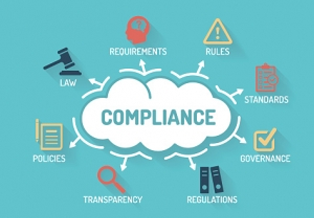Ten Areas of Non-Compliance
Whether it be the ACA, COBRA, ERISA, HIPAA, Section 125, or another regulation, employers can find themselves out of compliance somehow, and they may not even be aware. Here is a list of some common areas of
non-compliance, not ranked in any particular order.
1. Determining applicable large employer
(ALE) status under the Employer Mandate: This requires employers to determine the average number of employees on business days in the prior year, and employers must count full-time equivalent employees.
2. Determining full-time (FT) employee status under the Employer Mandate: This requires employers to have a deep understanding of their
employee classifications, and they generally must track hours of service to know who is a full-time employee.
3. ACA Reporting: This requires an employer of any size with a self-insured medical plan to submit reporting to help the IRS enforce the Inpidual
Mandate. It also requires ALEs to submit reporting to help the IRS determine if penalties under the Employer Mandate will apply.
4. PCORI Fees: Employers who have a fully insured medical plan which is integrated with an HRA must pay PCORI fees on the HRA, and several
employers are unaware of this requirement.
5. Plan Documents: Many employers are unaware that plan documents that are issued by an insurance company or third-party administrator fail to
disclose several pieces of information required under ERISA, and employers should be supplementing their plan documents with an additional document commonly referred to as a Wrap Document.
6. Non-Discrimination Testing:
Cafeteria Plans, Health FSAs, Dependent Care FSAs, HRAs, and self-insured medical plans all require non-discrimination testing to be performed to ensure the plan does not discriminate in favor of highly compensated and/or key employees. Several employers are not performing the required testing.
7. Form 5500 Reporting: In general, employers with ERISA plans that have 100 or more participants must file details about the plans using
Form 5500. The DOL has indicated several employers are meeting the requirements for the retirement plans but are failing to submit reporting on the health plans.
8. Medicare Part D Notice and Reporting: Employers must provide a notice to Medicare-eligible employees with information about the drug coverage available on the group plan, and whether it’s at least as good as the standard Part D plan. Employers must also report information about the drug coverage to CMS. Many employers fail to meet one or both requirements.
9. COBRA Administration: Several employers have failed to update their COBRA notices with information about the Health Insurance Marketplace. In
addition, several employers are not providing the COBRA General (Initial) notice on time or at all.
10. HIPAA: Employers who offer a self-insured plan, including a Health FSA or HRA, have access to Protected Health Information (PHI). As a result, they are supposed to have written policies and procedures on how/when they will use or disclose PHI, they should be appointing a privacy and security officer and meet other requirements. Several employers are lacking some or all of the requirements under HIPAA.
The materials contained within this communication are provided for informational purposes only and do not constitute legal or tax advice.


